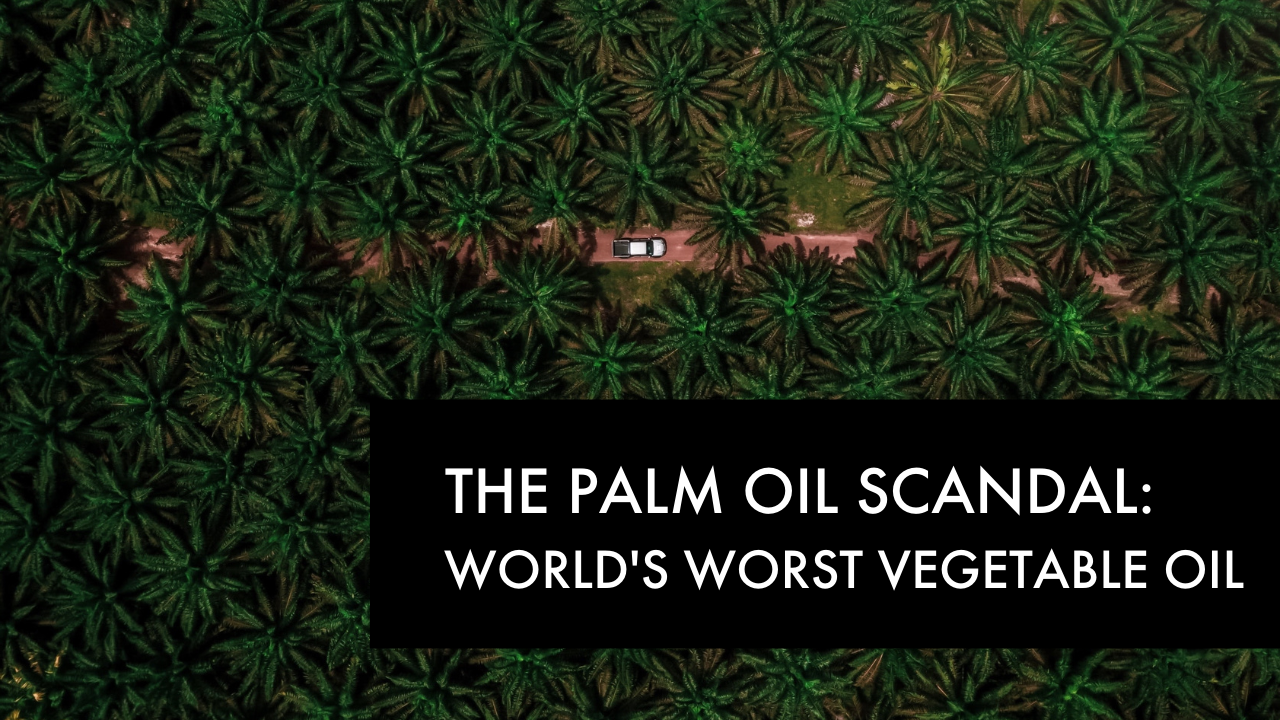The Palm Oil Scandal; World’s Worst Vegetable Oil

By Spencer Angeltvedt, Co-founder of Loa Skin
What does it mean to be palm-oil free?
Hiding in virtually all cosmetics, packaged foods, cleaning products, and even biodiesel—palm oil has secretly found its way into packaged goods and numerous industries across the globe.
Palm oil has quickly become the most widely used vegetable oil. While at first glance palm oil seems harmless, it has in fact bred one of the most environmentally destructive and morally corrupt industries on Earth.
Here’s why.
Palm oil is cheap to produce. It’s 10 times cheaper than soy—a once-industry leader. Palm oil’s incredibly high global demand has directly affected a few large islands in Indonesia and Malaysia where It’s mainly produced.
While little-known to the Western world, these islands consist of Sumatra, Borneo, and West Papua (of New Guinea), and contain some of the oldest and most biodiverse rainforests. Borneo, in particular, is the third largest island in the world.
Due to a number of factors including cheap labour and providing the perfect growing conditions, natural rainforests on these islands have been deliberately removed and replaced with palm oil plantations on a massive scale.
Palm oil producers use a method of farming known as slash-and-burn where they log and sell tropical timber trees, typically from carbon-rich peat forests, in order to subsidize costs. After peat forests have been cleared, they are then drained to make way for new plantations. Once drained and stripped of their resources, peat forests become highly flammable and palm oil producers take advantage of this by illegally setting them on fire. These fires often burn uncontrollably for weeks at a time (and are usually only extinguished with heavy rain), offering companies a cost and time-efficient way to expand their operations.
This has caused a number of unsettling issues.
First, the palm oil industry has caused massive deforestation. In Borneo, palm oil expansion is solely to blame for the staggering 39% forest loss between 2000 and 2018. Borneo and Sumatra are home to numerous endemic animal species, including the endangered orangutan and Sumatran tiger. Unfortunately, their numbers have severely declined due to habitat loss, and palm oil expansion continues to be their main threat.
Secondly, since palm oil plantations often decimate carbon-rich peat forests, unprecedented amounts of CO2 are released into the atmosphere which fuels climate change. Forest fires have also been so bad at times, that the toxic smog created from them has blanketed neighbouring countries.
Lastly, human rights and labour violations are rampant on palm oil plantations. Roughly 3.7 million Indonesians work for palm oil companies, and many of them face unrealistic demands on the amount of work they’re expected to do on a daily basis. As a result of this, many workers bring in their spouses and even children to help them meet their quota, with some workers earning as little as $2.50 USD per day. On top of this, Indigenous peoples’ ancestral lands have routinely been taken away and sold to palm oil companies.
With all of this said, It’s safe to say palm oil production is the definition of unsustainable—on so many levels. While “sustainable palm oil” certifications exist, studies have proven that they’re pretty meaningless. The majority of certified sustainable players in the palm oil industry operate in areas that were previously deforested and were home to endangered species.
The answer to all of this is to simply avoid palm oil as much as we can. The problem is there are over 200+ ingredients in cosmetics alone that are derived from palm oil, however, numerous certifications exist for products that don’t contain palm oil or its derivatives. The most notable is Orangutan Alliance, which we continue to partner with and support here at Loa Skin.
To take direct action, we can support organizations like Orangutan Foundation International, the Orangutan Project, and Bornean Sun Bear Conservation Centre.
-Spencer Angeltvedt, Co-founder of Loa Skin
Stay connected!
Join our newsletter to be up to date on all things Planted!

